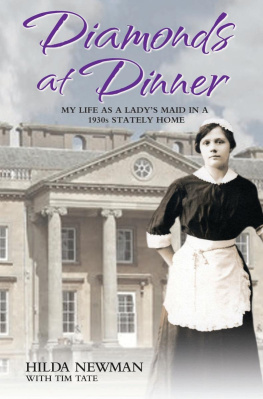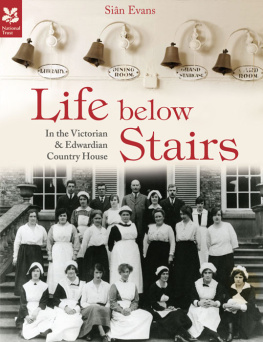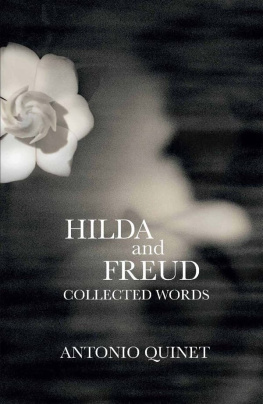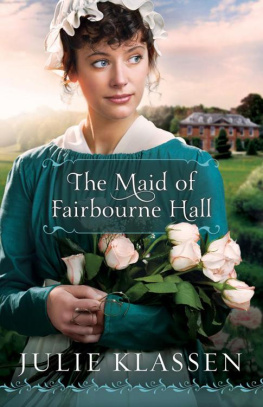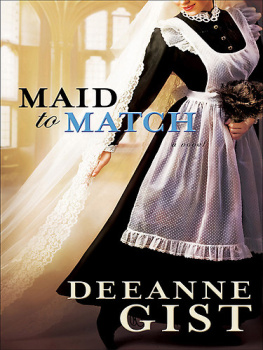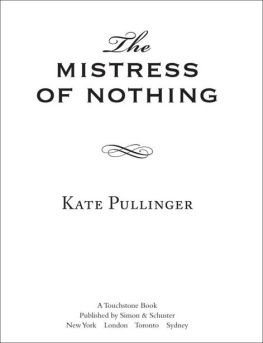T he gateway loomed before me. Beautiful and soft seeming in the summer sunlight, but solid and strong and from where I sat in the front seat of the little blue van forbiddingly tall. I glanced at the older man in the drivers seat. He smiled reassuringly but I felt the butterflies growing more frantic in my stomach.
We had been driving for what seemed like an age. From Worcester railway station we quickly left the town behind, following small and empty country lanes as they wound past fields and dense woodland. I had no idea what direction we were going in North? South? I couldnt have told you, much less where exactly we were going to end up. We seemed to be travelling mile after mile, ever deeper into the very heart of England. For a young town girl like me the endless rolling landscape felt alien and somehow frightening. I had never seen so many fields, so much open country.
I pushed myself down lower into the vans seat, thinking of the cosy little cottage I had left behind me, of my little sister and brother, and of the mum and dad I had left for the very first time so many hours before. Had I ever even sat in a motorcar before? Certainly not alone with a man, and an older man to boot. I had never been so far away from home or felt so alone and isolated.
With a start the van slipped under the imposing stone arch and slowly picked up speed along a narrow and winding driveway. Huge swathes of open parkland slipped past, with a wide and sluggish watercourse running through it: did these people have their own private river? In the distance I saw stone buildings some of them looked like the ancient Greek temples I had seen in schoolbooks scattered randomly across the never-ending acres of the estate.
The driveway seemed to go on forever, and then, as we rounded a last bend, I saw it: a huge stone mansion in the middle of the park, bathed in the soft afternoon light. It had two impossibly tall wings on either side of a central entrance flanked by round pillars, each at least 20 feet tall. A third massive section almost as big as the others and clearly a separate courtyard with stables was joined to the left side of the main building. I had never seen anything so big or so grand in all my 19 years.
This, then, was Croome Court. This vast and magnificent house was to be my new place of employment and my new home. I should have felt excited, astonished or grateful for the chance to live in such a wonderful place. Instead, as the car pulled up on the crunching gravel, I felt as if Id gone to prison.
Stamford by Gaslight
I am, it is safe to say, old now. Though a more polite way of looking at it would be to say that I have seen a lot of history. I arrived in the middle of one world war and served in uniform in the second. Eighteen governments of all sorts and political colours and twenty different prime ministers have come and gone. I have lived through the reigns of two and a half kings (more of which later) and was ten years old before our present Queen was born. In a very few years if both of us are spared she will send me a telegram to celebrate my 100th birthday.
I am, I suppose, a living piece of history: my body, which has grown old and frail, has registered the passing of ages, as a fossil captures and preserves its times for generations to come. But my mind, well, thats still as sharp as ever; still able to conjure up the memories and images of an era more than one, perhaps taught to my great-grandchildren in school history lessons.
And so I have a story to tell. And you, readers, why do you look within? Have you seen Downton Abbey or Upstairs Downstairs and come in search of stories from inside the aristocracy? Good: you shall not be disappointed, for there is much I have to tell you of life with the Earl and Countess of Coventry one of the oldest and greatest families in the land and of the lives that played out both above and below stairs at Croome Court, one of the grandest houses in England, set amid the rolling fields of Worcestershire. This, to be sure, is a tale of the gentry and of a leisured existence long since blown away by the coming of a new world.
Perhaps, though, you want a little more than this servants-eye-view: perhaps you have a sense that television dramas, all fine and good as may be, arent the whole story. Maybe you seek a different tale, one which shows the grit as well as the glamour: if so, you are doubly welcome, for my story is not simply that of a servant in a great house.
It is a story both of the times and of its time. It is a story of the rich and powerful and the ordinary folk who served them; it is the story of a mansion and oh, what a mansion. But it is also the story of the smaller, meaner homes of ordinary people. Perhaps it will serve to remind you to remind us all where we once came from and how we once lived. And that is important for, if we forget or if we never knew where we have come from, how will we know who we really are? If we lose touch with our history rich and poor, grand and humble how can we feel settled in ourselves? Without our stories perhaps without my story we, the people, will lose sight of our country and how we came to be.
If the past is another country, its gatekeepers are those who are steadily passing into the night, who have lived and breathed and survived it. And so my own story must be told soon for, as I have said, I am old 97 now and time will soon take me and my memories away and, with me, one more small piece of the jigsaw puzzle of our country of our life will be lost.
I shall tell you a story that began long, long ago and of which I am the living proof. I have the feeling that this will be the last time I tell this tale, so be comfortable, be patient and, if my memory fails sometimes or plays the tricks that come with and plague advancing years, well, then, you will, I hope, forgive an old lady who has much on her mind. From my heart I shall tell you my story and I shall speak true and with the kindness if not the wisdom! that seeps its way into old bones.
To begin our story we must venture not to the rural folds of Worcestershire, nor to a great country house. Our journey begins in a small, quiet town in Lincolnshire and to be specific in the close confines of the front room of a tiny red-bricked cottage in Red Lion Square in Stamford.
The year is 1916. Britain has been at war with Germany for two long and bloody years. Two harsh winters and two balmy summers have passed since hundreds of thousands of brave young men left their homes for the squalid and blood-flooded trenches of France. Many have already been consumed by the industrialised carnage of Flanders, never to return to till Englands fields or labour in its factories.
But my father has been lucky. He has not been claimed by the mass slaughter of Mons or Ypres or the Somme. And that August he is about to receive a letter, addressed to him care of his regiment, somewhere in France. All letters to and from Tommies in France were subject to censorship a little blue pencil wielded by an unknown official in the War Office in London. Perhaps fearing this, my mother has devised a code of her own to deliver some important news. The cushion has arrived. It does not have a tassel.
Quite what the censor must have made of this cryptic message we cannot know. But my father understood it straight away. His first child me had been born. And as to the tassel? Well, little girls dont have tassels, do they?
It cant have been easy for my parents, those first two years: Dad, away at the front with the concerns and yearnings that any new father has, added to the daily often nightly terrors of the First World War. He must, too, have feared greatly that his number might come up; that he might, as they used to say in the trenches, go west before he ever had the chance to see or hold me. Perhaps he sometimes wondered whether he would be lucky enough to cop a Blighty be wounded sufficiently badly to be shipped home. That would, at least, ensure he lived and would know me, even at the cost of some terrible injury.

